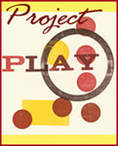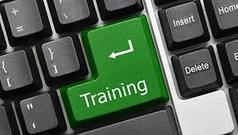I recently read an interview in Library Hotline called "Champion of Confidence" between Michael Stephens and Sally Pewhairangi, a librarian from New Zealand. In the interview, Sally talks about confidence being a big part of Digital Literacy. If you think about it, this makes sense. There's a great deal of self-doubt and fear about trying new things - especially for library staff or patrons who didn't grow up in the digital era. This interview led me to Sally's website called The Library Boss*. I explored around, read some of the blog posts, and took the quiz to find out my Digital Super-Power. According to Sally, there are six Digital Super-Powers: adaptability, critical thinking, curiosity, empathy, patience, and problem solving. Guess which one I am?** Which one are you?
Continue reading... Now it is Microsoft's turn. They just released free lesson plans and projects surrounding STEM subjects, calling it Hacking STEM. Check out their website here: https://www.microsoft.com/en-us/education/education-workshop/default.aspx. While there, select the blue EXPLORE THE LIBRARY box for more more projects. Most of these are inexpensive and use everyday materials. Have fun!
From Jim Lynch at techsoup:
So much of the recent technology news has been about the European General Data Protection Regulation (GDPR) that just went into effect. It's a set of rules about everyone in the EU's personal data privacy rights. But should your library do something about it? GDPR privacy standards are fast becoming the international standard for privacy. California has a similar law on the November ballot called the California Consumer Privacy Act of 2018. If that passes, then a number of U.S. states will probably follow suit. The website design firm Hallam Internet has published a very useful blog post on concrete, practical things that anyone with a website (including libraries) can do to comply with GDPR. Find the Hallam Internet piece here. For some good, clear info on what GDPR is and who it affects, I recommend Idealware's GDPR: Is Your Organization Ready? Google for Education comes through again with a robust tool for both teachers and students of technology. This is directed at schools but mentions libraries as well. Actually, it can be used - for free - by anyone!
My thought is that you could take advantage of this program in your library to assist patrons and/or your staff in learning technology-related subjects, or you could become the student and educate yourself. Either way, Google makes it easy. Go here to check it out and get started. You must have a Google account (i.e. gmail) to participate. Following the Students path will get you access to all the lessons, which is probably all you need. If you choose to follow the link for Teachers, you will be asked to complete a form about your position/facility; just fill it out as best you can. I did it myself and found nothing preventing me from participating. However, the "teacher" path takes you to lesson plans and organizational functions. Though necessary for a school teacher, it might be way more than you need for the library. |
AuthorJohn's collection of tech tips, trends, and training for NFLS librarians Click to set custom HTML
Archives
December 2018
|
|



 RSS Feed
RSS Feed
